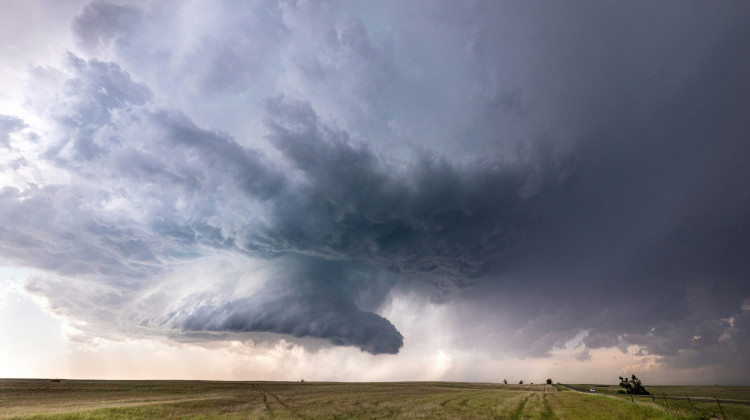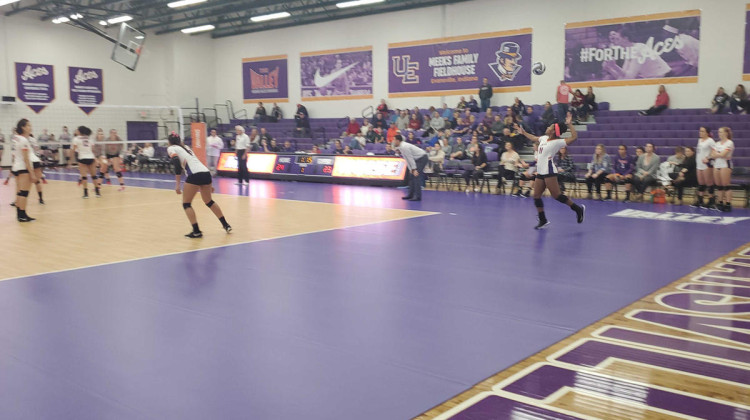This week's tornado outbreak across parts of the Midwest produced a short-lived tornado that swept through northwest Indiana before moving onto Lake Michigan as a waterspout, the National Weather Service said.
An EF-1 tornado with peak winds of 90 mph (145 kilometers per hour) touched down about 9:15 p.m. Tuesday in Lake County, Indiana, about 1 mile (1.6 kilometers) east of the city of East Chicago, said Zachary Yack, a meteorologist with the weather service’s Chicago office.
The storm was on the ground for about three minutes, moving along the Cline Avenue industrial highway just north of the Gary/Chicago International Airport before it moved onto Lake Michigan and became a waterspout about 3 miles (4.8 kilometers) northwest of Gary, he said.
Yack said the storm had a maximum width of 75 yards (69 meters) and it damaged trees and wooden utility poles, some of which were snapped by its winds. No injuries were reported.
The tornado outbreak between Tuesday evening and early Wednesday came after a stretch of summerlike, sometimes record temperatures, producing nearly two dozen confirmed or suspected tornadoes in Illinois, Indiana, Michigan and Ohio.
The weather service confirmed 11 tornadoes in northern Illinois, including 10 in the Chicago area.
Yack said that February tornadoes periodically touch down in the five counties of northwest Indiana that the weather service's Chicago office covers.
“It's not terribly common, but it's not super rare, either,” he said.
 DONATE
DONATE









 View More Programs
View More Programs

 Support WFYI. We can't do it without you.
Support WFYI. We can't do it without you.